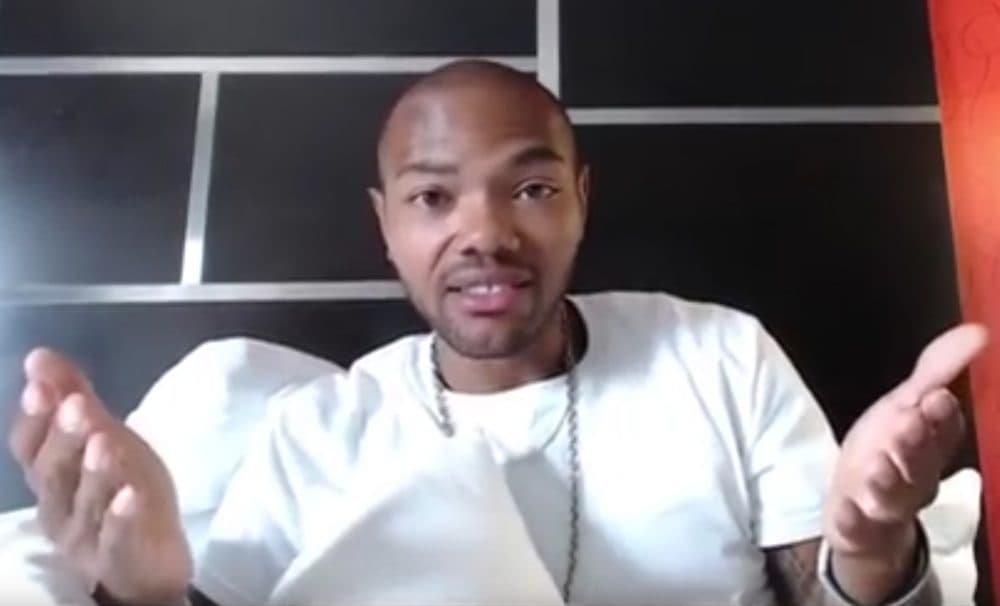Advertisement
Former Army Psychiatrist On Veterans, Mental Health: 'Everybody Who Goes To War Is Changed'

Both shooters in the recent police killings in Baton Rouge and Dallas — Micah Xavier Johnson and Gavin Long — spent time in the military, and potentially suffered from mental health issues.
Here & Now's Meghna Chakrabarti speaks with psychiatrist Elspeth Cameron Ritchie, a former high-ranking Army official, about mental health, violence and veterans.
Interview Highlights: Elspeth Cameron Ritchie
On how veterans are reacting to the Dallas and Baton Rouge shootings
"We've had over 2.7 million service members deploy to Iraq and Afghanistan. So we have a large number who have returned home, and veterans often go into law enforcement. Having said that, every veteran fears the idea of ‘the veteran as a ticking time bomb.’ These mass shootings, these slayings of police officers by former veterans, certainly disturb the larger veteran community."
On the relationship between mental illness and violence
"Persons with mental illness are far more likely to be victims of violence than to victimize others. Having said that, there are certain types and characteristics of mental illness that heighten the risk for violence. These are delusions, paranoia, irritability, substance abuse and anger at colleagues at the workplace."
On how war changes people
"I cannot speak directly to Micah Johnson, but what I can say is, everybody who goes to war is changed, and sometimes it's a positive way, and sometimes negative, and sometimes mixed.
The general public has heard a lot about post-traumatic stress disorder, PTSD. Another term that should be used more often is called moral injury. That's a sense of somebody having shame or guilt or feeling wounded by what it is that they have done or saw. Again, I can't speak to these two specific cases (Micah Xavier Johnson and Gavin Long), but I do see many veterans who are suffering with shame or guilt, as well as post-traumatic stress disorder."
"I cannot speak directly to Micah Johnson, but what I can say is, everybody who goes to war is changed, and sometimes it's a positive way, and sometimes negative, and sometimes mixed."
Elspeth Cameron Ritchie
On how soldiers readjust to civilian life
"As you say, they are trained to fight, to shoot, to do their job under difficult circumstances which can include killing. What I think is harder to prepare for is perhaps the guilt you feel after shooting somebody especially, for example, if the victims are children. The film ‘American Sniper’ depicted that, I thought, quite well.
It's also hard if you've lost colleagues and you can sort of be trained to shrug it off, but if you've got a buddy who's been blown away, that's very hard to make sense of in your life."
On the rates of violence among veterans
"A lot is known about the suicide rate, both in active duty and among veterans. The normal term is 22 veterans kill themselves a day. That's a lot. In the active duty military, it has been going up since about 2004. Recently it has stabilized somewhat but still unacceptably high, especially in the National Guard and reserves.
Rates of violence we know less about, but what we do know is that veterans with post-traumatic disorder have a slightly higher incident of domestic violence and of gun violations. That's what they tend of get arrested with. That's not really surprising. Being deployed to war strains relationships, puts a lot of pressure on them, and then veterans are trained to handle weapons and they often feel most comfortable with a weapon. This is unfortunate.
One of the things I do in my practice, I always ask veterans about firearms and discuss other ways that they can feel safe. In some cases I'll recommend that they get a dog, for example, which is a lot less lethal than a firearm."
Advertisement
On the significance that Johnson and Long were veterans
"I think there's probably other factors at play that are more important. For example, risk factors for violence in the general population include delusions, paranoia, irritability and anger. And what the news reports have said about these two shooters, it seems that delusions, paranoia and anger factored in there. Now, the fact that we're veterans may or may not have made their shooting more accurate, and I don't think you can discount that. But I think the other pieces are very important as well."
On if the military is doing enough to support veterans' mental health
"I am not speaking for the military or the VA here, I need to make that clear, but I would say that both are doing everything they can, but more is needed. So I always urge my civilian counterparts to learn about the military culture and to step up and be ready to treat the military.
Again, we've had 2.7 million service members deploy recently and that's on top of many, many millions who have served in other wars. For example the Vietnam-era veterans, I see a lot of now, and they are needing help and support as well, 50 years after the war in Vietnam. So more certainly can be done."
Guest
Col. (Ret.) Elspeth Cameron Ritchie, forensic psychiatrist specializing in military and veterans’ issues.
This segment aired on July 21, 2016.